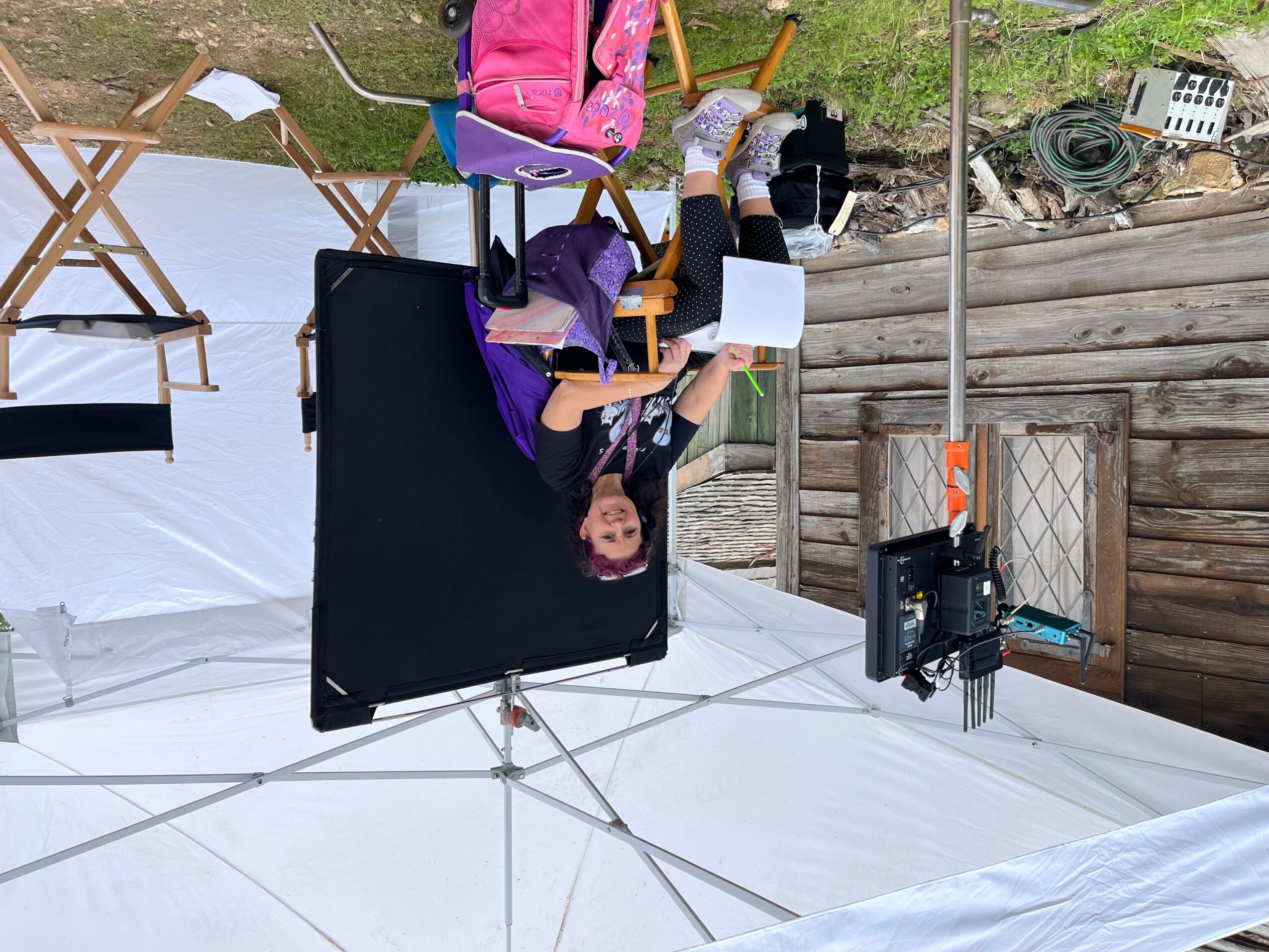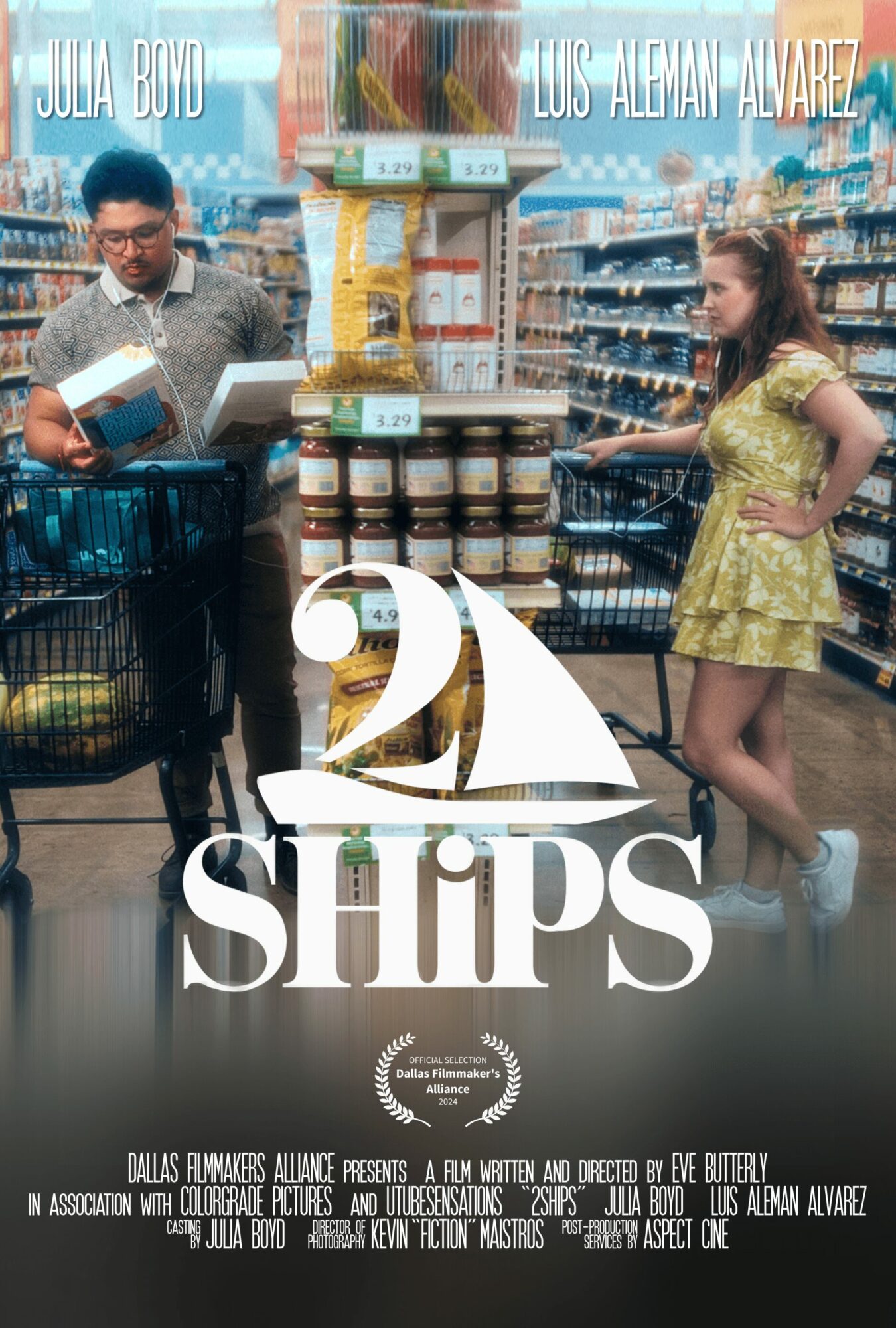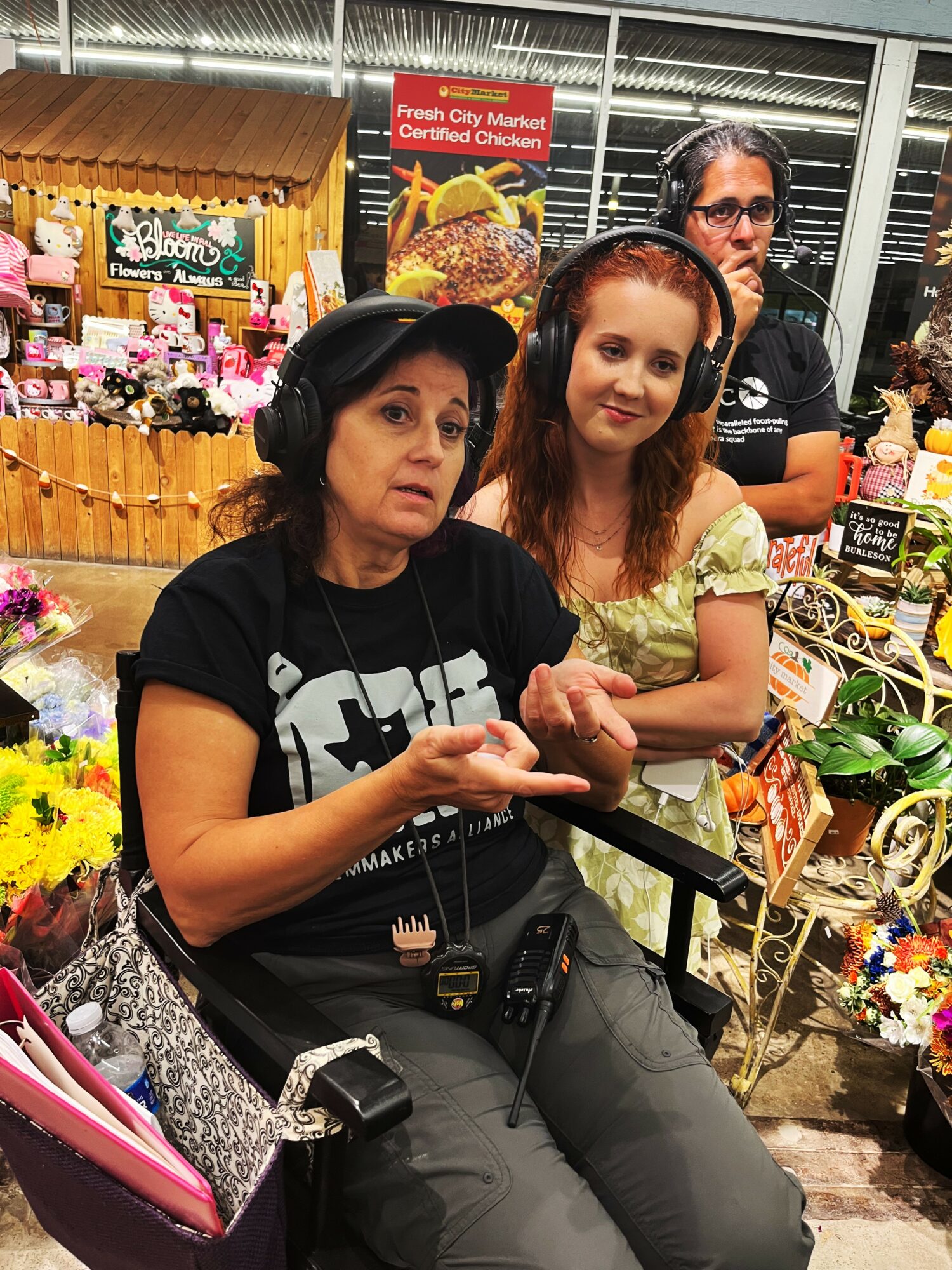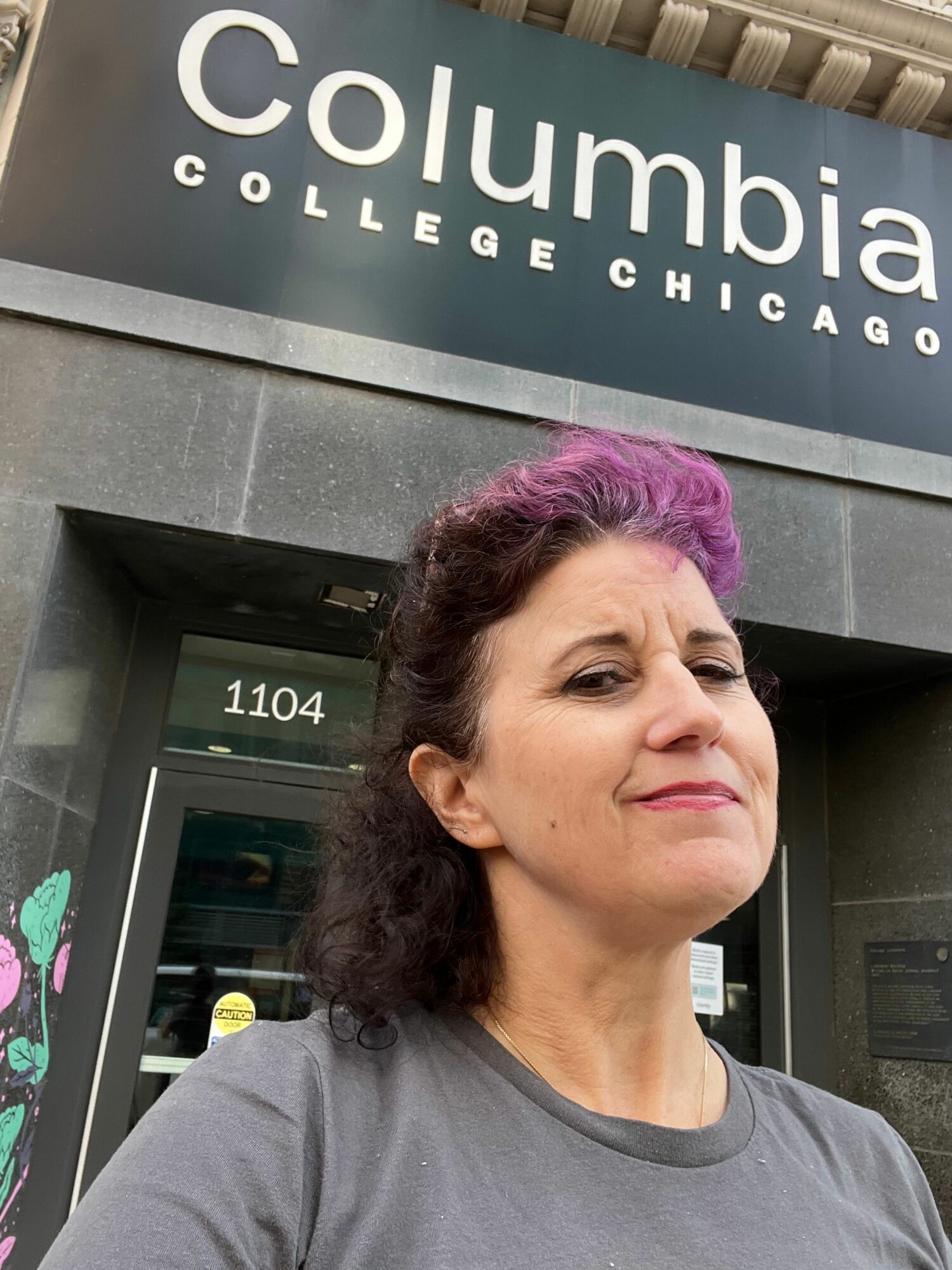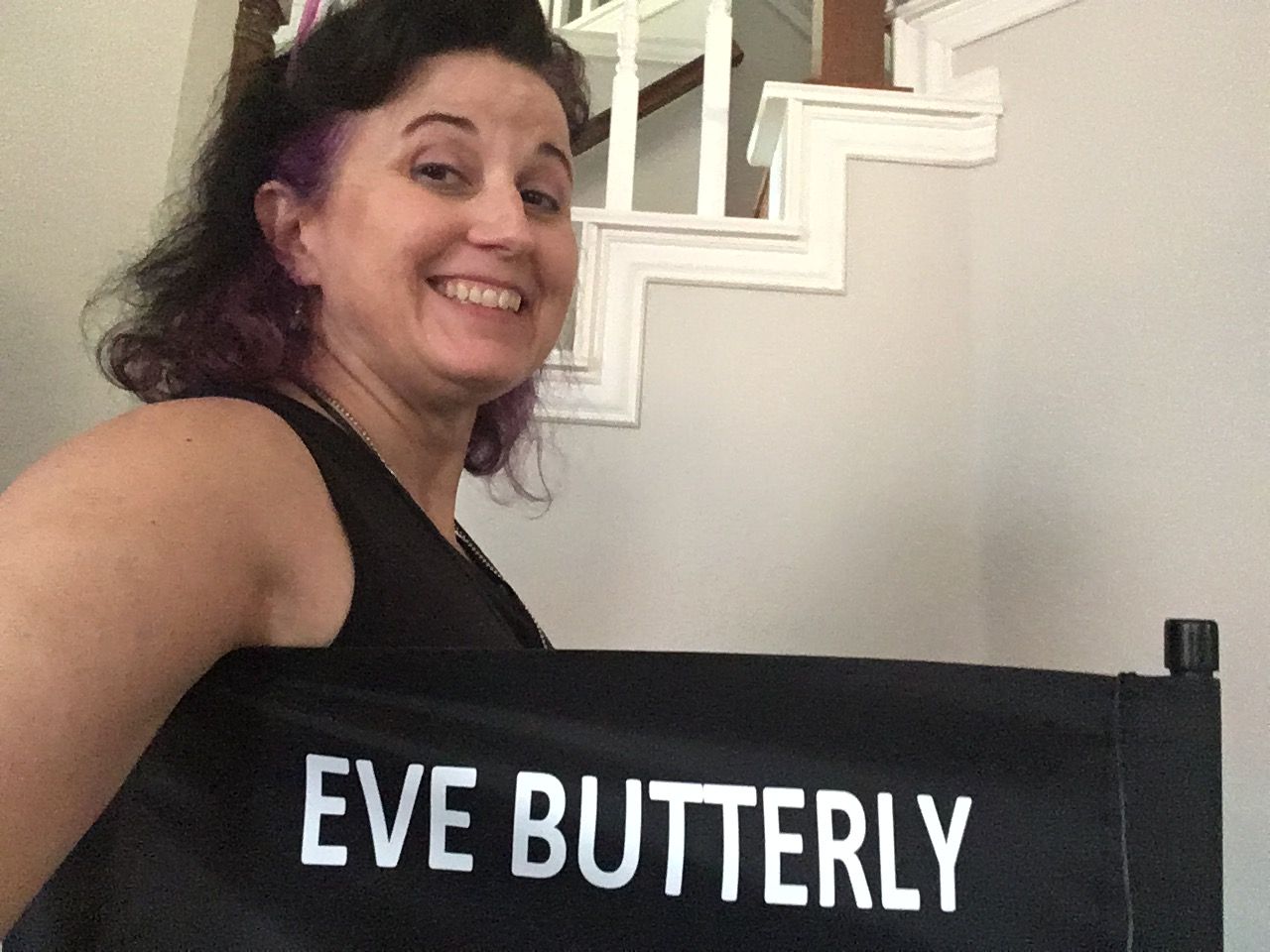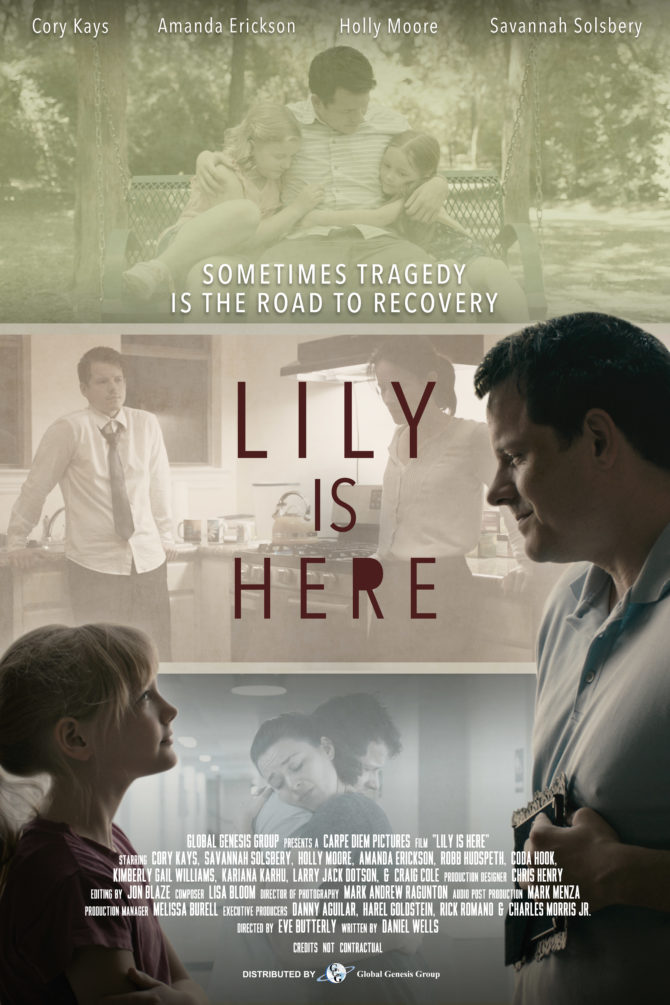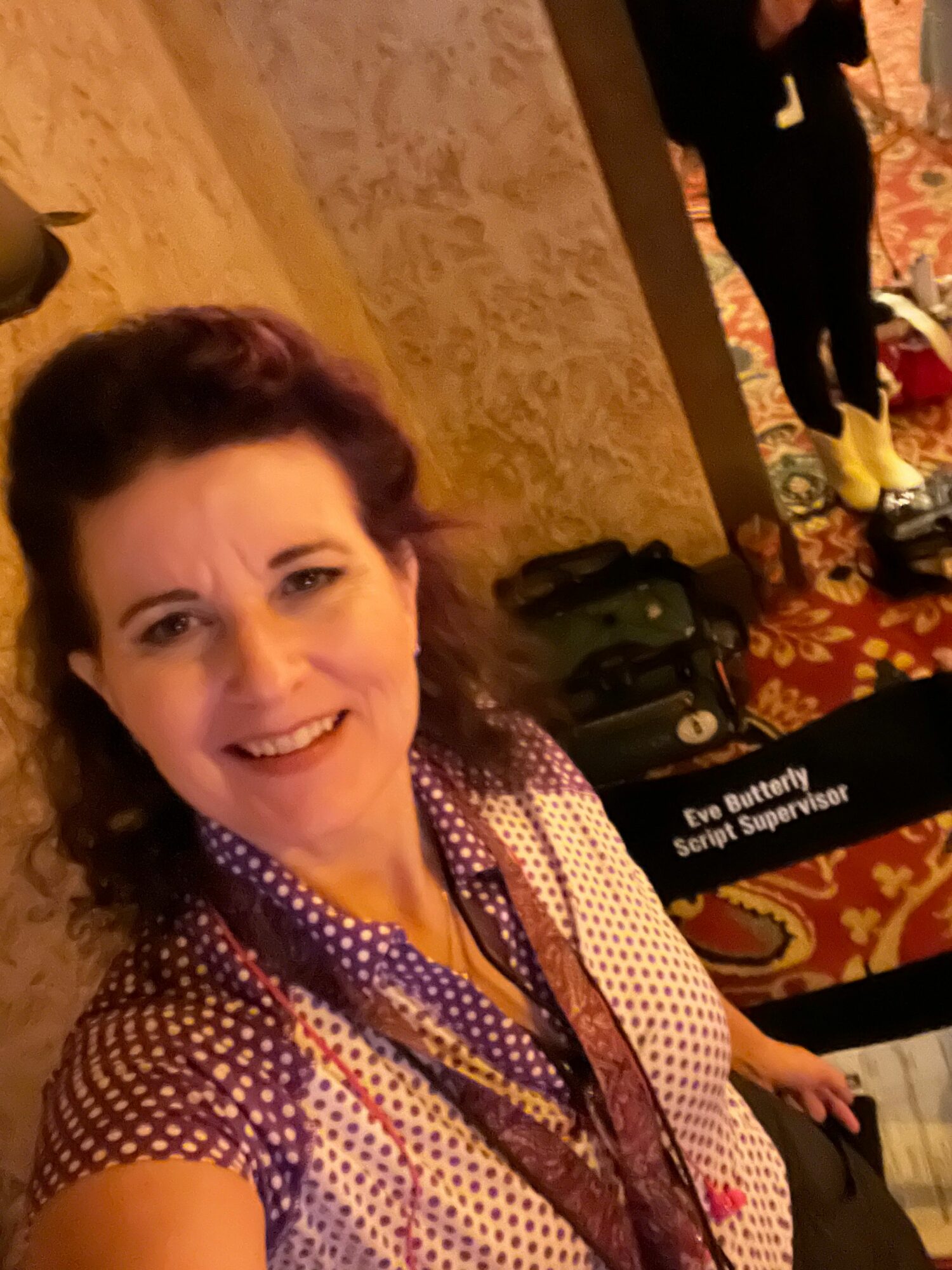

Today we’d like to introduce you to Eve Butterly.
Alright, so thank you so much for sharing your story and insight with our readers. To kick things off, can you tell us a bit about how you got started?
As many Theatre Kids do, I wanted to work in movies when I grew up. However, I recognized that being an actor was too financially insecure for me, so I opted for an equally non-stable career behind the camera. I never could have predicted how uneven my career would be!
Naturally, like all young filmmakers when first starting out, I wanted to be a producer or director–never realizing the hundreds of other challenging, fulfilling, lucrative and fun crew positions available on a movie set. I started off on a Producing track, but every so often would be pressed into ‘taking notes for the editor’, a position known as Script Supervising. The Script Supervisor advocates for the editor: taking notes, matching continuity details, screen direction, and tracking all the pieces that are shot to ensure everything in the script is addressed, nothing is forgotten, and it all cuts together seamlessly in the final project. The Script Supervisor is a department of one, who sits next to the Director and confers and collaborates with all members of the cast and crew. Because of this unique position to interact with everyone on set, a lot of people don’t realize that Script Supervising is the best path to directing.
When I was dayplaying on the TV show SALEM in Shreveport, there was a college student who was shadowing the director. That’s when I had an epiphany: when this student graduated, they were going to make up a business card that said “Director.” Yet I had been sitting next to directors for over twenty years—why was I not directing?
Just a few months later, just such an opportunity fell into my lap. I directed the feature film LILY IS HERE (now available to rent on Amazon Prime). Then the pandemic hit.
During Covid, I chanced upon an opportunity to submit for an adjunct professor position teaching script supervising remotely at Columbia College Chicago. I overcame my Imposter Syndrome to apply, thinking, “What could it hurt?” I taught Introductory and Advanced Script Supervising for six semesters. The best way to solidify your learning is to teach it to someone else, and the depth and breadth of my knowlege has increased exponentially.
There is a line from the 1988 film TAPEHEADS, where the young filmmakers’ motto is “Do what you gotta do, so you can do what you want to do.” Throughout my career I’ve grown and adapted and survived and even thrived because I gotta do what I gotta do, whether that be directing, script supervising, or teaching others to script supervise.
Alright, so let’s dig a little deeper into the story – has it been an easy path overall and if not, what were the challenges you’ve had to overcome?
For the first decade of my career, I alternated between production and script supervising jobs. I often wondered if I would ever settle into one department or the other. I married and after my daughter Julia was born, I took a few years hiatus putting my career on the backburner, as many women do. It seemed like the few producing opportunities I did have fell through, while my script supervisor opportunities hung on.
When I got divorced, my job opportunities were limited by my responsibilities as a single mom to a preschooler. When Julia was little, any out-of-town job offers were a hard pass for me. I turned down many prestigious jobs that were a blow to my ego as well as my career advancement. Consequently, I had to accept any low budget project that enabled me to make a little bit of money and be home every night with my child; jobs well below my normal rate or level of expertise. As she got older, I could accept short jobs on location only if they fit into our schedule. At one point, I calculated I had turned down over $450,000 worth of work by the time my daughter was in middle school.
Eventually I was able to work more often and on better projects, shooting an entire season of THE GOOD GUYS starring Colin Hanks and Bradley Whitford in 2010. Things were looking up! I eventually landed a chance to direct a film and we held our cast and crew screening for LILY IS HERE in February of 2020. I thought my career was poised to accelerate: when my daughter left for college that September, I would be free to choose lucrative work anywhere, anytime. A worldwide pandemic was definitely not on my bingo card. The entertainment industry shut down, and again, my film career came to a screeching halt.
I pivoted to teaching remotely during Covid, and discovered a new passion; according to my students’ feedback, I was good at it. However in 2023 my Adjunct Professors union at Columbia College Chicago went on strike—at the same time as the Writers and Actors Strike that shuttered the film industry. My teaching job at CCC ended, and the film business is still struggling to recover from the strikes.
It seems like my film career has been a study in perseverance, endurance, and change. At no point have I been able to say I’d reached a point where I could cruise on my past successes. I’ve seen so many other filmmakers leave the industry for more financially secure jobs. The struggle persists, and so do I. I have started teaching script supervising remotely at South Puget Sound Community College in between gigs, and I’m working on a book to accompany my courses.
Appreciate you sharing that. What else should we know about what you do?
Filmmaking is a collaborative process. First time visitors to a movie set are always amazed at the number of people involved, and the amount of time it takes to complete even the shortest project. Script Supervisors are the magical unicorns of the film set: very few people know exactly what we do, and misconceptions abound. I can’t tell you how many times young, inexperienced directors have told me, “My producer told me I needed to hire you, but I have no idea why you’re here.” Or the perennial favorite, “You just make sure the actors say their lines right.”
I am passionate to educate film crews (and the public) that a Script Supervisor is a key member of the Director’s team and the best path to directing itself. Unlike other crew positions, we collaborate with every single department, plus the actors–not even the Director does that. A good Script Supervisor knows a little bit about everything (camera, sound, directing, props, makeup, hair, acting) and a lot about organizing and disseminating information. Our work ensures the Editor has a blueprint to cut the film together effiiciently. We help make sure the continuity within a scene and between scenes is correct. We produce reports at the end of every day to track how much was shot, what is still owed, and how much is left to do. We don’t hit record, we don’t sew the costumes, we don’t build the sets, we don’t speak the lines–we make all of that BETTER.
I believe that in order to do a good job at any task, it’s necessary to understand WHY you do things. Understanding the end goal lets you make better decisions in performing your work. I pride myself in a deep understanding of the history of script supervising, having come from the days when we worked on film, then videotape, and now digital photography. Some Script Supervisors struggle with time management and information overload because they aren’t disciplined or get distracted with details they don’t need to worry about. Through years of experience and honing my craft, I teach my students a system that provides production with accurate information delivered promptly at the end of the day. I am fast, effiecient and low-maintenance, which is a great benefit to the crew members that depend on me. Work smarter, not harder, I always say!
What are your plans for the future?
I hope the increased state film tax incentives that started in September will bring more work to Texas. Sadly, the local hire percentage in the incentives was decreased, so there is little incentive to hire Texans. But I am optimistic work will increase in the near future. I am able to travel and love to do so, but my cat would like me to stay at home. My dream job would be to script supervise a film in France or Switzerland, since I speak fluent French.
My daughter Julia is an actress, and I wrote and directed a short rom-com, 2SHIPS, that allowed us to collaborate for the first time. Making a no-budget ‘passion project’ can be a lot of fun, but it’s also stressful and expensive to self-fund a film. The film industry is a study in Catch-22s: no one will hire you to do a job that you haven’t already done. Now that I have successfully completed a feature film, a short film and several commercial projects, I feel I can showcase my talent as a Director. I’m actively seeking bigger and better directing opportunities.
Contact Info:
- Website: https://www.campusce.net/SPSCC/course/course.aspx?catId=255
- Facebook: https://www.facebook.com/eve.butterly1
- LinkedIn: https://www.linkedin.com/in/eve-butterly-4b60179a
- Other: https://www.imdb.com/name/nm0125313/?ref_=ext_shr_lnk
